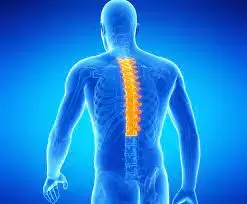- Home
- Medical news & Guidelines
- Anesthesiology
- Cardiology and CTVS
- Critical Care
- Dentistry
- Dermatology
- Diabetes and Endocrinology
- ENT
- Gastroenterology
- Medicine
- Nephrology
- Neurology
- Obstretics-Gynaecology
- Oncology
- Ophthalmology
- Orthopaedics
- Pediatrics-Neonatology
- Psychiatry
- Pulmonology
- Radiology
- Surgery
- Urology
- Laboratory Medicine
- Diet
- Nursing
- Paramedical
- Physiotherapy
- Health news
- Fact Check
- Bone Health Fact Check
- Brain Health Fact Check
- Cancer Related Fact Check
- Child Care Fact Check
- Dental and oral health fact check
- Diabetes and metabolic health fact check
- Diet and Nutrition Fact Check
- Eye and ENT Care Fact Check
- Fitness fact check
- Gut health fact check
- Heart health fact check
- Kidney health fact check
- Medical education fact check
- Men's health fact check
- Respiratory fact check
- Skin and hair care fact check
- Vaccine and Immunization fact check
- Women's health fact check
- AYUSH
- State News
- Andaman and Nicobar Islands
- Andhra Pradesh
- Arunachal Pradesh
- Assam
- Bihar
- Chandigarh
- Chattisgarh
- Dadra and Nagar Haveli
- Daman and Diu
- Delhi
- Goa
- Gujarat
- Haryana
- Himachal Pradesh
- Jammu & Kashmir
- Jharkhand
- Karnataka
- Kerala
- Ladakh
- Lakshadweep
- Madhya Pradesh
- Maharashtra
- Manipur
- Meghalaya
- Mizoram
- Nagaland
- Odisha
- Puducherry
- Punjab
- Rajasthan
- Sikkim
- Tamil Nadu
- Telangana
- Tripura
- Uttar Pradesh
- Uttrakhand
- West Bengal
- Medical Education
- Industry
CRP levels associated with slow radiographic progression in axial spondyloarthritis: study

Early control of C-reactive protein levels with non-biologic is associated with slow radiographic progression in radiographic axial spondyloarthritis, according to a recent study published in the International Journal of Rheumatic Diseases.
Predicting radiographic progression is vital for assessing the prognosis of patients with radiographic axial spondyloarthritis, and C-reactive protein (CRP) may be a valuable biomarker for this purpose. This study aimed to investigate the relationship between changes in the CRP level and spinal radiographic progression in patients with radiographic axial spondyloarthritis who were initially treated with non-biologics.
Patients with radiographic axial spondyloarthritis who were followed up for 18 years at a single centre and initially treated with nonsteroidal anti-inflammatory drugs and/or conventional disease-modifying antirheumatic drugs for 3 months were included. Patients with a CRP level of <0.8 mg/dL or 50% of the baseline CRP at 3 months were assigned to the controlled CRP group (n = 351), and the remaining patients were assigned to the uncontrolled CRP group (n = 452). A generalized estimating equation was used to analyze the differences in the modified Stoke Ankylosing Spondylitis Spinal Score (mSASSS) between the 2 groups.
The results of the study are as follows:
The increase in the mSASSS was slower in the controlled CRP group than in the uncontrolled CRP group (interaction term β = -.499, 95% confidence interval -0.699 to -0.300).
Thus, the researchers concluded that controlled CRP achieved in response to initial treatment with non-biologic agents for 3 months was significantly associated with a slower rate of spinal radiographic change in patients with radiographic axial spondyloarthritis. The CRP level at 3 months after initial non-biologic treatment is a good predictor of radiographic progression.
Reference:
Early control of C-reactive protein levels with non-biologic is associated with slow radiographic progression in radiographic axial spondyloarthritis by Bon San Koo et. al published in the International Journal of Rheumatic Diseases
https://pubmed.ncbi.nlm.nih.gov/34935282/
Dr. Shravani Dali has completed her BDS from Pravara institute of medical sciences, loni. Following which she extensively worked in the healthcare sector for 2+ years. She has been actively involved in writing blogs in field of health and wellness. Currently she is pursuing her Masters of public health-health administration from Tata institute of social sciences. She can be contacted at editorial@medicaldialogues.in.
Dr Kamal Kant Kohli-MBBS, DTCD- a chest specialist with more than 30 years of practice and a flair for writing clinical articles, Dr Kamal Kant Kohli joined Medical Dialogues as a Chief Editor of Medical News. Besides writing articles, as an editor, he proofreads and verifies all the medical content published on Medical Dialogues including those coming from journals, studies,medical conferences,guidelines etc. Email: drkohli@medicaldialogues.in. Contact no. 011-43720751


